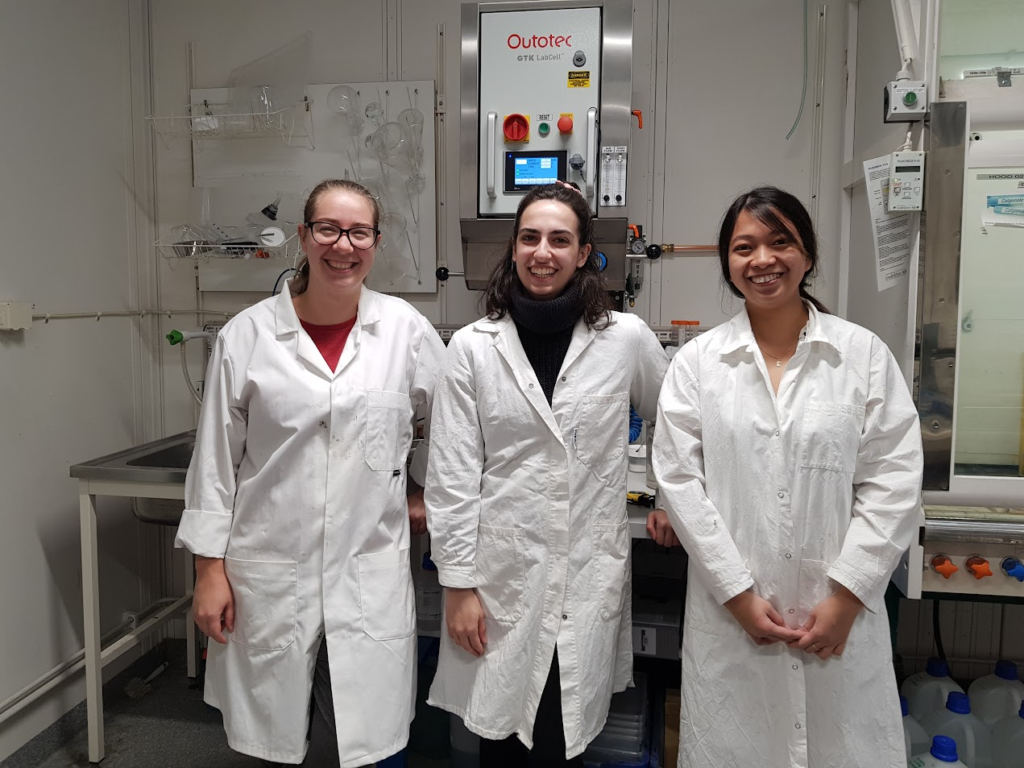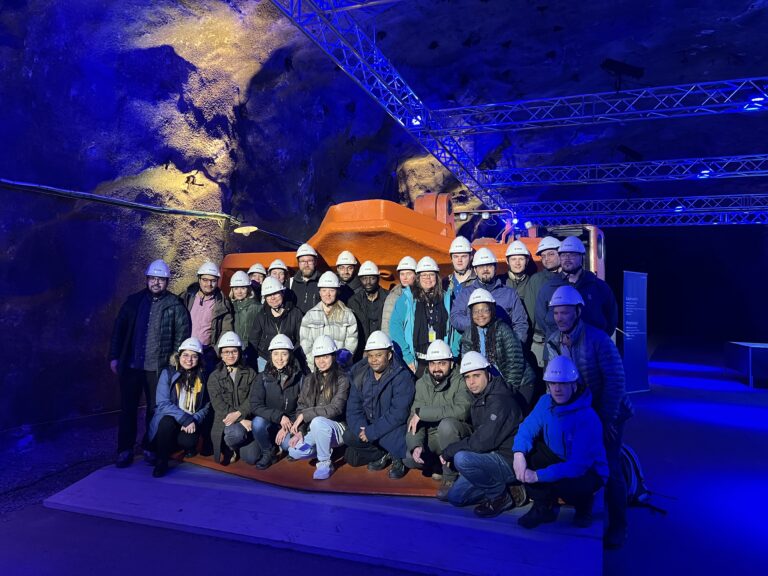Creating a fossil-free and environmentally friendly mining industry requires the development of bio-based renewable reagents for beneficiation process. Flotation with xanthates is currently in widespread use in the beneficiation processes of base metals and gold. To develop a more sustainable process we have in three sequential research projects assessed the potential of replacing currently used flotation reagents with lignin particles obtained from renewable feedstocks.
Can the use of abundant renewable feedstocks support a low-carbon-footprint mining industry? This question initiated a successful research journey, involving the expertise from both academia and industry. For the initial concept, the Biochemical Process Engineering research group at Luleå University of Technology, used an organosolv reactor to produce eco-friendly biodegradable non-toxic lignin particles from forest materials provided by Sveaskog. Boliden Minerals assessed the organosolv lignin particles as a flotation reagent in a novel sustainable flotation process for copper recovery. The development has been supported by both Swedish Mining Innovation and EIT Raw Materials. The three projects in Swedish Mining Innovation thus far:
- The LIGNOFLOT pre-study was able to demonstrate that the lignin particles had a great potential to enable selective recovery of copper and other minerals in the presence of iron sulphides without the presence of a depressant. The new flotation process using lignin particles is now protected under a granted Swedish patent, also pending in Europe.
- LIGNOFLOT full-scale innovation projects was initiated based on the positive results and the industrial interest after the pre-study. This project continued the development and testing of organosolv lignin particles and added expertise of Nouryon. The aim of LIGNOFLOT was to improve selectivity of copper extraction from sulphide ores, based on total or partial replacement of fossil-based xanthate collectors by the developed lignin-based reagent.
- LIGNOMIN full-scale innovation project which is ongoing is building on the knowledge gained from the LIGNOFLOT project. The project aims to increase the number of lignin sources available for the lignin particle reagent to provide renewable feedstocks for production of the biobased flotation reagents that offer both higher revenue by increasing recovery of valuable base metals and reduce CO2 and environmental footprint. More specifically, in LIGNOMIN we will explore the impact of using lignin from abundant lignocellulosic sources, i.e. technical lignins from Nordic biorefineries, as well as residues from the agricultural and food industry, for production of lignin particles to be used in a new flotation reagent system. An interesting approach is the use of brewery waste, in this case brewer’s spent grain, as a lignin source.
“We at Bottenvikens like to collaborate with others, in LIGNOMIN we get the opportunity to work cross industries and disciplines. We can explore technologies to valorize our waste and find new opportunities to position our SME in a circular economy in the green transition of the north of Sweden”.
-Mattias Bergström CEO of Bottenvikens Bryggeri AB
The next step
The lignin reagents will be further studied so that specific tailored particles can be produced and applied to specific ore samples. The project is expected to be completed in 2026 and we hope that the results can support the establishment of a European production line of flotation reagents, which will simultaneously increase the economic impact and lower the environmental impact as well as strengthen the international competitiveness in the sector, says Ulrika Rova, Professor and Project Manager, Luleå University of Technology.
This is one example of projects that contribute to sustainable processing and demonstrates cross-sectoral symbiosis.
Read the full article and learn more about the projects.
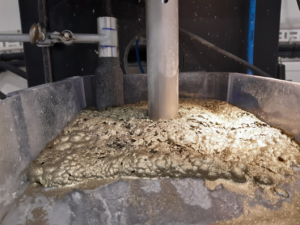
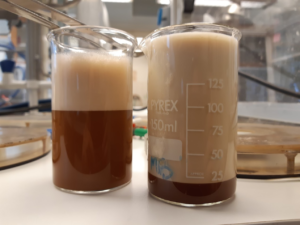
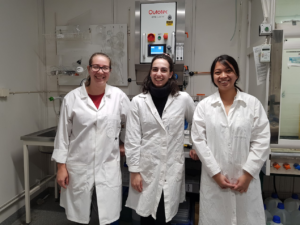
Katerina Hruzova, Kalliopi Pavlopoulou, and July Ann Bazar.




